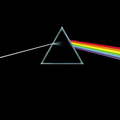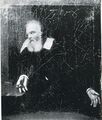Physics (nonfiction): Difference between revisions
No edit summary |
No edit summary |
||
| Line 18: | Line 18: | ||
File:Maxwell's_demon.svg|link=Maxwell's demon (nonfiction)|[[Maxwell's demon (nonfiction)|Maxwell's demon]] not so bad once you get to know [[Mathematics|the math]], says [[Léon Brillouin (nonfiction)|Brillouin]]. | File:Maxwell's_demon.svg|link=Maxwell's demon (nonfiction)|[[Maxwell's demon (nonfiction)|Maxwell's demon]] not so bad once you get to know [[Mathematics|the math]], says [[Léon Brillouin (nonfiction)|Brillouin]]. | ||
File:Dark Side of the Moon.png|link=The Dark Side of the Moon (nonfiction)|''[[The Dark Side of the Moon (nonfiction)|The Dark Side of the Moon]]'' is "the best rock album ever", according to new [[Computation (nonfiction)|computational model]] of Sir Isaac Newton. | File:Dark Side of the Moon.png|link=The Dark Side of the Moon (nonfiction)|''[[The Dark Side of the Moon (nonfiction)|The Dark Side of the Moon]]'' is "the best rock album ever", according to new [[Computation (nonfiction)|computational model]] of Sir Isaac Newton. | ||
File:Galileo_E_pur_si_muove.jpg|link=Galileo | File:Galileo_E_pur_si_muove.jpg|link=Galileo Galilei|Physicist and crime-fighter [[Galileo Galilei]], imprisoned on trumped-up charges, uses nail to scratch the equation ''E pur si muove'' on dungeon wall; in the process, he discovers a deliberately concealed [[Gnomon algorithm function]] which proves his innocence. Although [[Galileo Galilei|Galileo]]'s accusation that the [[Gnomon algorithm|function]] was stolen and concealed by the [[Forbidden Ratio]] is widely believed to be true, no proof has emerged that the [[Forbidden Ratio|Ratio]] or its [[Degeneracy (nonfiction)|degenerate cases]] were involved. | ||
</gallery> | </gallery> | ||
Latest revision as of 10:30, 22 April 2018
Physics (from Ancient Greek: φυσική (ἐπιστήμη) phusikḗ (epistḗmē) "knowledge of nature", from φύσις phúsis "nature") is the natural science that involves the study of matter and its motion through space and time, along with related concepts such as energy and force.
More broadly, it is the general analysis of nature, conducted in order to understand how the universe behaves.
Physics is one of the oldest academic disciplines, perhaps the oldest through its inclusion of astronomy.
Over the last two millennia, physics was a part of natural philosophy along with chemistry, certain branches of mathematics, and biology, but during the scientific revolution in the 17th century, the natural sciences emerged as unique research programs in their own right.
According to Eugene Wigner:
Physics doesn't describe nature. Physics describes regularities among events and only regularities among events.
In the News
Maxwell's demon not so bad once you get to know the math, says Brillouin.
The Dark Side of the Moon is "the best rock album ever", according to new computational model of Sir Isaac Newton.
Physicist and crime-fighter Galileo Galilei, imprisoned on trumped-up charges, uses nail to scratch the equation E pur si muove on dungeon wall; in the process, he discovers a deliberately concealed Gnomon algorithm function which proves his innocence. Although Galileo's accusation that the function was stolen and concealed by the Forbidden Ratio is widely believed to be true, no proof has emerged that the Ratio or its degenerate cases were involved.
Fiction cross-reference
- Crimes against physical constants
- Gray light
- Gnomon algorithm
- Gnomon Chronicles
- High-energy literature
- Mathematician
- Mathematics
Nonfiction cross-reference
- Mathematics (nonfiction)
- Light (nonfiction)
- Mathematician (nonfiction)
- Mathematics (nonfiction)
- Physicist (nonfiction)
External links:
- Physics @ Wikipedia

